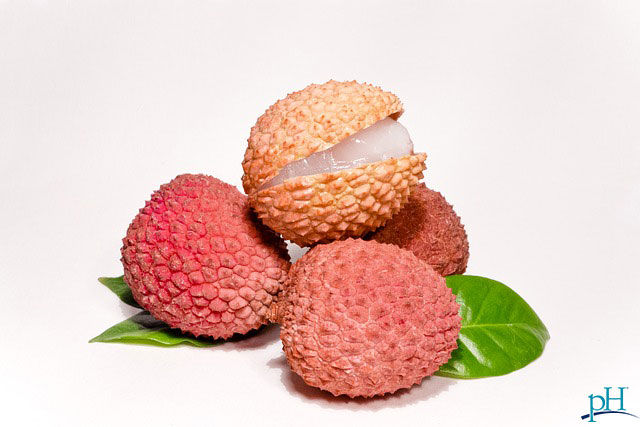Lychee: The “Dangerous” Fruit With Amazing Health Benefits
9 years ago | Nutrition
By Joy Stephenson-Laws and the pH health care professionals
You may have heard about lychees in the news not long ago. Children living near lychee orchards in India were waking up screaming and crying beginning in mid-May. They had seizures, comas and even died in about 40 percent of cases. Then in July, the monsoon rains came and the outbreak would end. This happened each year. Finally, scientists were able to pinpoint the cause -- the lychees were being eaten on an empty stomach by malnourished children.
The hungry children often ate unripened lychees or lychees that fell to the ground, which contained high levels of a naturally occurring amino acid derivative called hypoglycin. Lab tests confirmed this, showing abnormally high levels of hypoglycin in the affected children’s urine. Hypoglycin inhibits the body's ability to produce glucose, causing hypoglycemia (low blood sugar), which affected the children whose blood sugar levels were already so low because they were not eating dinner.
Health officials urged the parents to feed the children an evening meal and limit how much lychee they ate. As a result, the cases of the mysterious illness dropped significantly.
So are lychees hazardous?
Lychees are eaten in various countries around the world without issue. The key lesson we can take from the children in India is to not eat unripened lychees on an empty stomach. If you are well-nourished and eating ripe lychees in moderation, you don’t need to worry.
There are actually several health benefits of lychees!
Benefits of lychees
A cup of lychees is a good source of vitamin C, vitamin B2 (riboflavin), potassium and copper. Ten fresh lychees would have around 69 mg of vitamin C, which is equivalent to a medium orange!
Lychees also have antioxidant, anti-cancer, anti-inflammatory, anti-microbial, anti-viral, anti-diabetic, anti-obesity, liver-protective and immune-boosting benefits. Lychees are especially rich in polyphenols (plant-based antioxidants), including proanthocyanidins, which may help prevent serious heart problems, cancer and other diseases.
Its anti-diabetic activities are particularly interesting. A 2013 review published in Evidence-Based Complementary and Alternative Medicine highlighted lychees’ blood glucose-lowering abilities. Lychee seed extract helps reduce insulin resistance, and the polyphenol oligonol found in the lychee fruit may help with diabetes-related vascular problems. The fruit also may help fight inflammation and oxidative stress associated with diabetes and obesity. However, they do have quite a bit of sugar -- 29 g in a cup. So moderation is key. Diabetics interested in lychee and lychee extracts should consult with a qualified healthcare provider.
Be proactive, enjoy lychees in moderation and enjoy your healthy life!
The pH professional health care team includes recognized experts from a variety of health care and related disciplines, including physicians, health care attorneys, nutritionists, nurses and certified fitness instructors. To learn more about the pH Health Care Team, click here.







